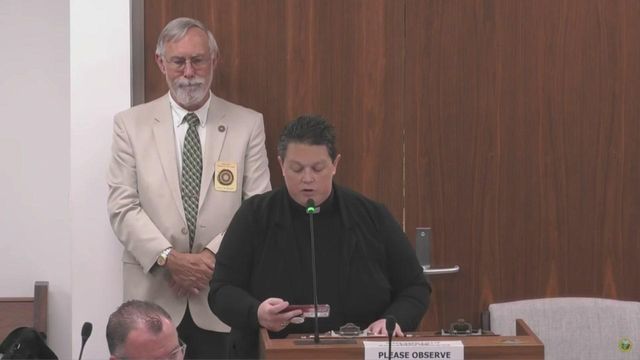'It's personal': Burlington founder develops technology to destroy PFAS after losing loved one to cancer
For Jacob Printz, a conversation with his mom, Michele, marked the ceremonial end to his work day.
"I would call her before I left the parking lot every single day,” Printz said through tears. “I miss her.”
Michele Printz passed away in January from a rare and aggressive form of breast cancer. She spent decades living on military bases with contaminated drinking water that contained per- and polyflouroalkyl substances (PFAS), also known as "forever chemicals."
Jacob and his uncle, Steve Wilcenski, believe that the tainted water played a role in Michele's illness.
Recent studies have identified many types of PFAS as endocrine-disrupting chemicals that may contribute to breast cancer risk and development.
"Losing Michele really invigorated us and got us focused on solving the PFAS problem in drinking water, Wilcenski said.
Wilcenski founded Invicta Water, a company that uses material science to clean water, where Jacob is now a research engineering associate.
"For us, it's much more than a business," Wilcenski said. "It's personal."
The Invicta team discovered a way to use boron nitride and UV light to create a chemical reaction the destroys PFAS particles, without toxic byproducts.
"We wanted to not just remove the chemical, but destroy it," Wilcenski said. "And in a way that was simple, cost-effective and easy to implement."
Wilcenski estimates Invicta's process is 75% cheaper than current systems used by water treatment plants to remove PFAS, including Cape Fear Public Utility Authority in Wilmington.
Invicta's system also doesn't need costly maintenance or disposal required with filter systems.
After tests in Navy and Elon University laboratories showed that the process works, Wilcenski says they are planning to pilot large-scale applications for water treatment and industrial use.
Invicta is also developing at-home versions of the system for wells and countertops.
Printz and Wilcenski hope that if they can develop technology to eradicate chemicals in drinking water, they can prevent others from going through the heartbreak that they faced with Michelle's death.
“I want to make her proud," Printz said. "And, I know we will.”
Related stories
- WRAL Documentary: 'Forever Chemicals: North Carolina's Toxic Tap Water'
- EPA: More drinking water systems across NC contain toxic 'forever chemicals'
- 'Forever chemicals' found in central North Carolina, study finds
- Outrage over Chemours' plans to expand production after widespread chemical pollution in NC drinking water
- Chemours is importing GenX chemicals from Europe to North Carolina











